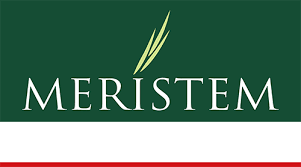The Impact of Rising Global Crude Oil Prices on the Nigerian Economy and Financial Markets
The global surge in crude oil prices, driven by escalating geopolitical tensions in the Middle East, presents a complex scenario for the Nigerian economy and its financial markets. While Nigeria, as a major oil producer, stands to gain from increased oil revenues, the ripple effects of this price surge extend to various sectors, impacting inflation, interest rates, and ultimately, investor sentiment. Investment firm Meristem Securities Limited delves into these dynamics, forecasting potential winners and losers in this evolving landscape.
Oil and Banking Sectors Poised for Growth Amidst Global Uncertainty
Meristem’s analysis points to the oil and banking sectors as potential beneficiaries of the current oil price rally. Upstream oil companies, particularly those with significant exposure to international crude oil markets, are expected to witness improved earnings. Companies like Seplat Energy Plc, Geregu Power Plc, and Aradel Holdings Plc are highlighted as prime examples, poised to capitalize on higher crude prices and translate them into increased profitability. Concurrently, the banking sector is projected to benefit from the higher interest rate environment, a consequence of efforts to combat inflation. Increased net interest income is anticipated, further strengthening the positive earnings trajectory of banks and likely attracting sustained market attention.
Nigeria’s Macroeconomic Outlook: A Balancing Act Between Revenue Gains and Inflationary Pressures
The rising oil prices offer a potential boost to Nigeria’s foreign exchange earnings and government revenue, both crucial for macroeconomic stability. Increased foreign exchange inflows can contribute to exchange rate stability, especially when coupled with improved capital flows. This stability is essential for managing import costs and maintaining a healthy balance of payments. Furthermore, the increased government revenue can strengthen fiscal sustainability, enabling the government to finance development projects and social programs. However, these potential benefits are tempered by Nigeria’s persistent challenges with crude oil production, which has consistently fallen short of budgeted targets. This underperformance limits the extent to which the country can fully capitalize on the higher global prices. Moreover, the deregulated fuel pricing regime in Nigeria poses a significant inflationary risk. Higher international crude prices directly translate to higher domestic fuel prices, impacting transportation costs and potentially spilling over into food inflation as the cost of moving agricultural produce and consumer goods increases.
Navigating the Fixed-Income Market: Interest Rates and Investor Interest
The global trend of rising interest rates, spearheaded by the US Federal Reserve, combined with domestic inflationary concerns, is expected to maintain attractive yields in the Nigerian fixed-income market. This environment is likely to sustain investor interest in Nigerian bonds, offering competitive returns compared to other investment options. However, the interplay between global and domestic factors requires careful monitoring, as changes in either sphere could influence investor behavior and potentially impact bond yields.
Investor Sentiment and Sectoral Performance: A Mixed Outlook
Meristem’s overall outlook for the Nigerian financial market remains cautiously optimistic, with a mixed bag of potential gains and challenges. Investor sentiment is anticipated to favor oil and banking stocks, driven by the positive projections for these sectors. Conversely, real sector equities may experience reduced momentum due to the headwinds of inflation and limited access to credit. These factors can squeeze profit margins and hinder growth prospects, potentially dampening investor enthusiasm for companies operating in these sectors.
Conclusion: Strategic Positioning in a Dynamic Market Environment
The current global economic climate, characterized by rising oil prices, inflation, and fluctuating interest rates, presents both opportunities and challenges for Nigeria. While the oil and banking sectors are poised to benefit, the broader economy faces the dual pressures of potential revenue gains and inflationary risks. Navigating this complex landscape requires strategic decision-making by investors, policymakers, and businesses alike. Careful monitoring of global and domestic developments, coupled with proactive measures to mitigate risks and capitalize on opportunities, will be crucial for achieving sustainable economic growth and financial stability.


